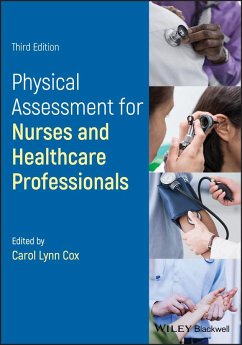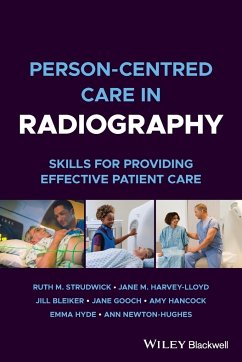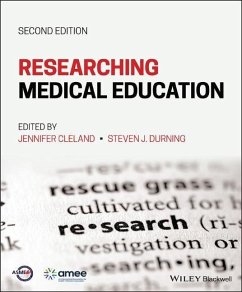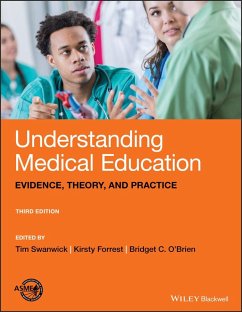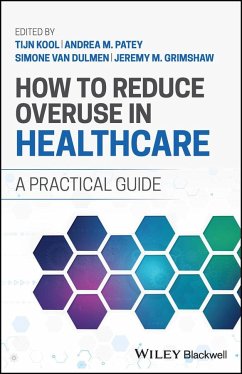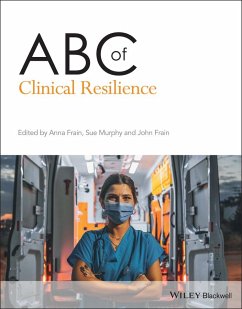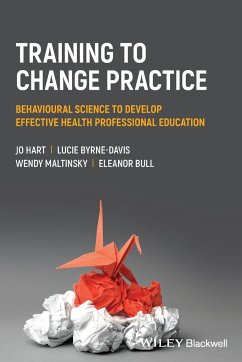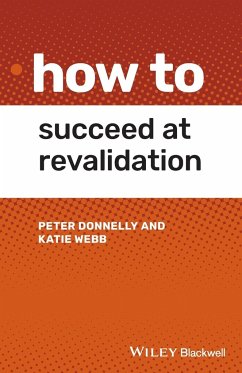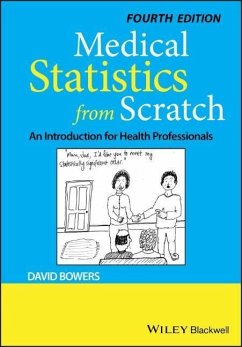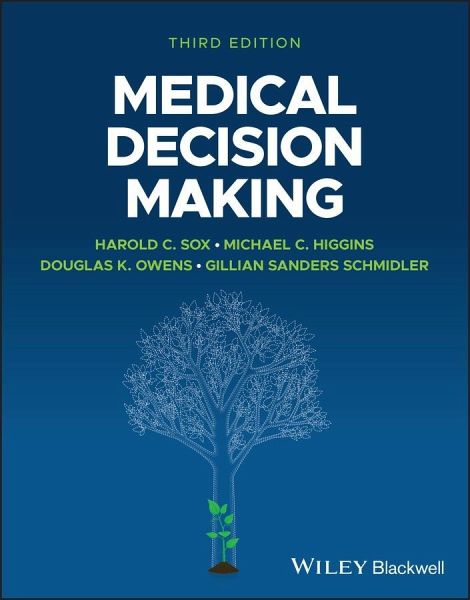
Medical Decision Making
Versandkostenfrei!
Versandfertig in 2-4 Wochen
62,99 €
inkl. MwSt.
Weitere Ausgaben:

PAYBACK Punkte
31 °P sammeln!
MEDICAL DECISION MAKINGDetailed resource showing how to best make medical decisions while incorporating clinical practice guidelines and decision support systemsSir William Osler, a legendary physician of an earlier era, once said, "Medicine is a science of uncertainty and an art of probability." In Osler's day, and now, decisions about treatment often cannot wait until the diagnosis is certain. Medical Decision Making is about how to make the best possible decision given that uncertainty. The book shows how to tailor decisions under uncertainty to achieve the best outcome based on published e...
MEDICAL DECISION MAKING
Detailed resource showing how to best make medical decisions while incorporating clinical practice guidelines and decision support systems
Sir William Osler, a legendary physician of an earlier era, once said, "Medicine is a science of uncertainty and an art of probability." In Osler's day, and now, decisions about treatment often cannot wait until the diagnosis is certain. Medical Decision Making is about how to make the best possible decision given that uncertainty. The book shows how to tailor decisions under uncertainty to achieve the best outcome based on published evidence, features of a patient's illness, and the patient's preferences.
Medical Decision Making describes a powerful framework for helping clinicians and their patients reach decisions that lead to outcomes that the patient prefers. That framework contains the key principles of patient-centered decision-making in clinical practice.
Since the first edition of Medical Decision Making in 1988, the authors have focused on explaining key concepts and illustrating them with clinical examples. For the Third Edition, every chapter has been revised and updated.
Written by four distinguished and highly qualified authors, Medical Decision Making includes information on:
_ How to consider the possible causes of a patient's illness and decide on the probability of the most important diagnoses.
_ How to measure the accuracy of a diagnostic test.
_ How to help patients express their concerns about the risks that they face and how an illness may affect their lives.
_ How to describe uncertainty about how an illness may change over time.
_ How to construct and analyze decision trees.
_ How to identify the threshold for doing a test or starting treatment
_ How to apply these concepts to the design of practice guidelines and medical policy making.
Medical Decision Making is a valuable resource for clinicians, medical trainees, and students of decision analysis who wish to fully understand and apply the principles of decision making to clinical practice.
Detailed resource showing how to best make medical decisions while incorporating clinical practice guidelines and decision support systems
Sir William Osler, a legendary physician of an earlier era, once said, "Medicine is a science of uncertainty and an art of probability." In Osler's day, and now, decisions about treatment often cannot wait until the diagnosis is certain. Medical Decision Making is about how to make the best possible decision given that uncertainty. The book shows how to tailor decisions under uncertainty to achieve the best outcome based on published evidence, features of a patient's illness, and the patient's preferences.
Medical Decision Making describes a powerful framework for helping clinicians and their patients reach decisions that lead to outcomes that the patient prefers. That framework contains the key principles of patient-centered decision-making in clinical practice.
Since the first edition of Medical Decision Making in 1988, the authors have focused on explaining key concepts and illustrating them with clinical examples. For the Third Edition, every chapter has been revised and updated.
Written by four distinguished and highly qualified authors, Medical Decision Making includes information on:
_ How to consider the possible causes of a patient's illness and decide on the probability of the most important diagnoses.
_ How to measure the accuracy of a diagnostic test.
_ How to help patients express their concerns about the risks that they face and how an illness may affect their lives.
_ How to describe uncertainty about how an illness may change over time.
_ How to construct and analyze decision trees.
_ How to identify the threshold for doing a test or starting treatment
_ How to apply these concepts to the design of practice guidelines and medical policy making.
Medical Decision Making is a valuable resource for clinicians, medical trainees, and students of decision analysis who wish to fully understand and apply the principles of decision making to clinical practice.




